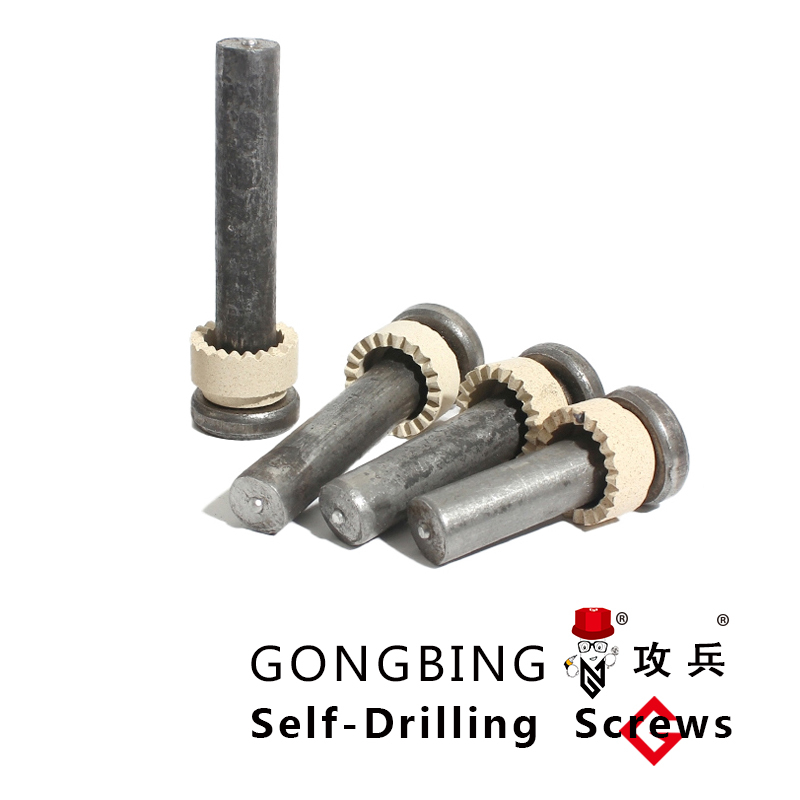chemical fasteners concrete
Chemical Fasteners in Concrete A Comprehensive Overview
In the realm of construction and civil engineering, the choice of fasteners plays a pivotal role in the stability and longevity of structures. Among the various types of fasteners available, chemical fasteners have gained significant popularity, particularly when it comes to applications involving concrete. This article delves into the advantages, applications, installation procedures, and considerations for using chemical fasteners in concrete settings.
What are Chemical Fasteners?
Chemical fasteners, often referred to as chemical anchors or epoxy anchors, utilize a two-part adhesive system that consists of a resin and a hardener. When combined, these components cure to create a bond stronger than many traditional mechanical fasteners. This bond adheres not just to the surface of the concrete but also penetrates into the substrate, providing enhanced grip and strength.
Advantages of Chemical Fasteners
1. High Load Capacity One of the primary benefits of chemical fasteners is their ability to handle substantial loads. Their unique bonding mechanism enables them to perform effectively even in high-stress applications, making them ideal for securing heavy-duty fixtures, machinery, or structural components.
2. Resistance to Environmental Factors Chemical fasteners are resistant to moisture, temperature fluctuations, and chemical exposure. This quality makes them suitable for outdoor applications and environments where traditional fasteners might corrode or degrade over time.
3. Versatility These fasteners can be used in various substrates, including concrete, brick, and stone. Their adaptability allows for diverse applications, ranging from residential to industrial settings.
4. Reduced Risk of Cracking Unlike traditional mechanical anchors that require drilling and expansion within the concrete, chemical fasteners minimize the risk of cracking or damaging the substrate. This feature is particularly beneficial when working with aged or weakened concrete.
Applications of Chemical Fasteners
Chemical fasteners are utilized in various applications within the construction industry, including
- Structural Support They are often used to secure beams, columns, and other structural elements in buildings, bridges, and other infrastructures.
- Installation of Equipment Heavy machinery and equipment, especially in industrial settings, are frequently anchored using chemical fasteners due to their high load-bearing capacity.
- Renovation Projects When renovating older buildings, chemical fasteners provide a reliable means of securing new fixtures to existing concrete without compromising the integrity of the structure
.- Anchoring in Challenging Conditions In environments where concrete may be subject to moisture, chemicals, or fluctuating temperatures, chemical anchors provide a dependable solution.
chemical fasteners concrete

Installation Process
Installing chemical fasteners typically involves a few key steps
1. Preparation The hole for the fastener must be drilled into the concrete (or other substrate). The diameter and depth of the hole will depend on the specifications of the chosen chemical anchor.
2. Cleaning The hole should be thoroughly cleaned using compressed air or a brush to remove dust and debris, ensuring a strong bond.
3. Mixing the Adhesive The resin and hardener need to be mixed according to the manufacturer’s instructions, which is vital for achieving the intended strength and curing time.
4. Application The mixed adhesive is applied to the hole, and the anchor is inserted. Care should be taken to ensure that the anchor is fully coated with the adhesive.
5. Curing After installation, the anchor must be allowed to cure for the recommended time before any load is applied. This curing time can vary based on the specific product and environmental conditions.
Considerations When Using Chemical Fasteners
While chemical fasteners offer numerous advantages, there are some considerations to keep in mind
- Temperature Sensitivity The curing process is affected by temperature. Cold temperatures can prolong curing times, while excessively hot conditions can lead to premature curing.
- Chemical Compatibility It’s essential to ensure that the chosen adhesive is compatible with the intended environment, particularly if there will be exposure to harsh chemicals.
- Laboratory Testing For critical applications, laboratory testing may be necessary to ascertain the bond strength and suitability of the fastener for specific loads and conditions.
Conclusion
Chemical fasteners represent a significant advancement in fastening technology for concrete applications. Their strength, durability, and versatility make them an excellent choice for a wide array of projects. By understanding their benefits and proper installation techniques, contractors and builders can leverage chemical fasteners to enhance the safety and reliability of their structures. As construction methods continue to evolve, the role of innovative solutions like chemical fasteners will undoubtedly become ever more essential.
-
Weatherproof Plastic Expansion Anchors for OutdoorსიახლეებიJun.06,2025
-
Sustainability in the Supply Chain: Eco-Friendly TEK Screws ProductionსიახლეებიJun.06,2025
-
Load-Bearing Capacity of External Insulation FixingsსიახლეებიJun.06,2025
-
Double Head Bolts: Enhancing Efficiency in Industrial MachineryსიახლეებიJun.06,2025
-
Corrosion Resistance in Chipboard Screws: Coatings for Wholesale DurabilityსიახლეებიJun.06,2025
-
Butterfly Toggle Bolts : Enhancing Structural ResilienceსიახლეებიJun.06,2025
